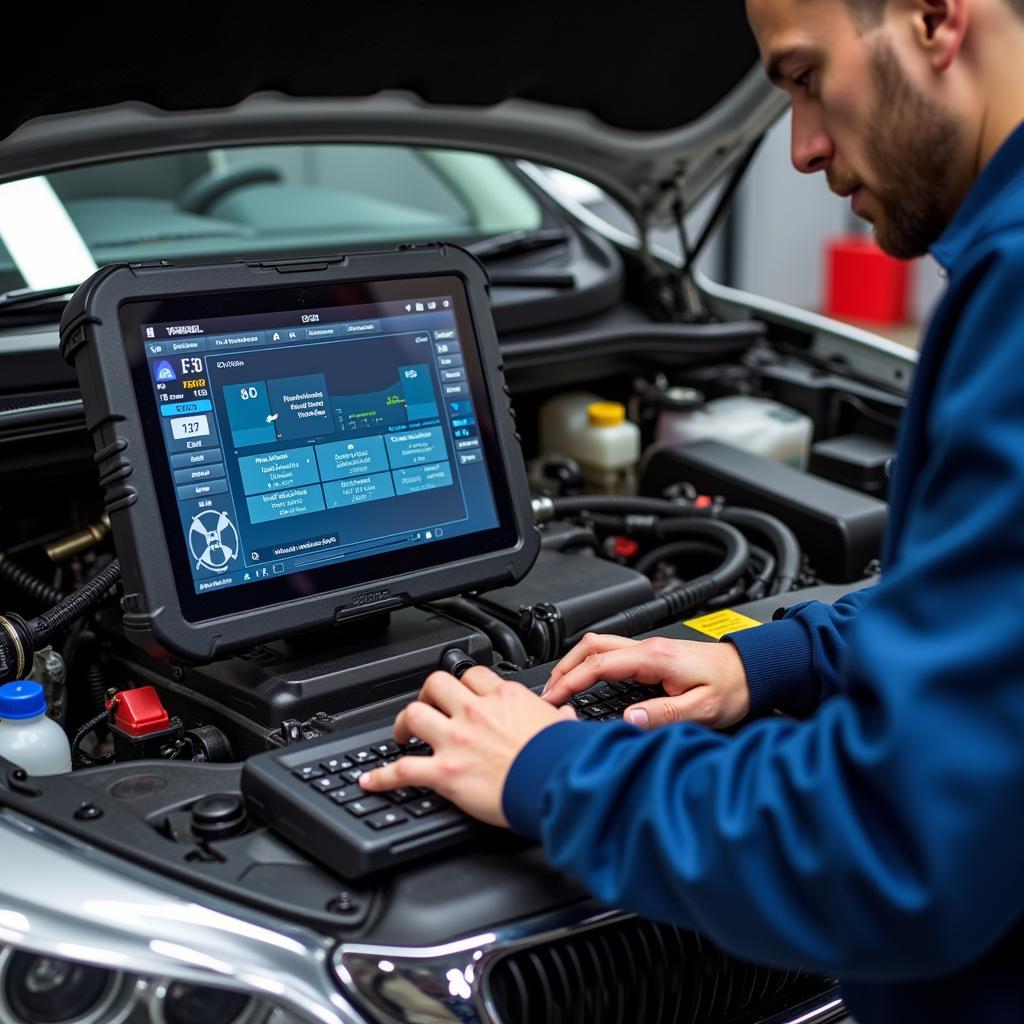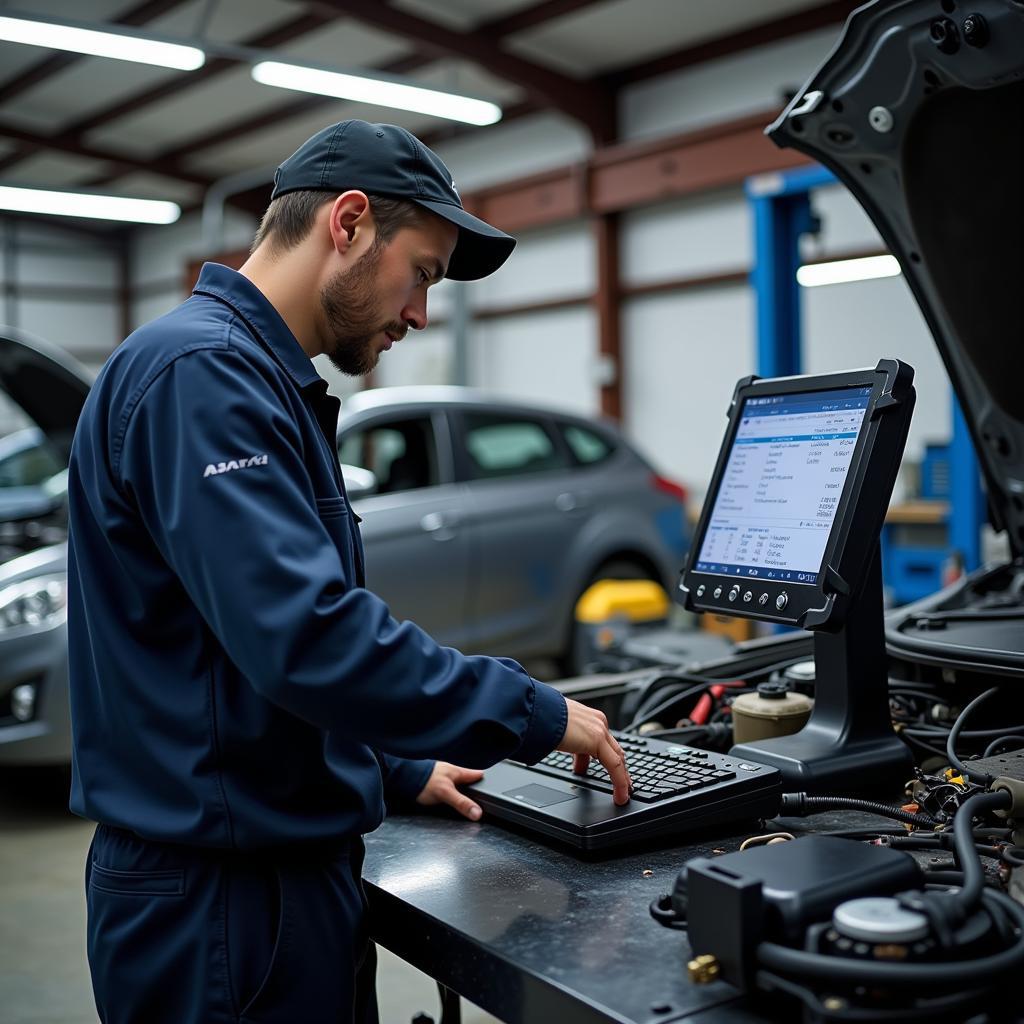Finding The Best Diagnostic Machine For All Cars can feel like searching for a needle in a haystack. With so many options available, each boasting unique features and capabilities, it’s easy to get lost in a sea of technical jargon and conflicting reviews.
This comprehensive guide cuts through the noise and provides clarity on choosing the ideal diagnostic machine for your needs. Whether you’re a seasoned mechanic or a car enthusiast looking to DIY, understanding the key factors, features, and top contenders in the market will empower you to make an informed decision.
Understanding Your Diagnostic Needs
Before diving into the specifics of diagnostic machines, it’s crucial to assess your individual requirements.
- Frequency of Use: Do you need a diagnostic machine for daily professional use, occasional DIY repairs, or something in between?
- Vehicle Coverage: Are you working with a specific car make and model, or do you need a machine that covers a wide range of vehicles, including domestic and import?
- Diagnostic Depth: Are you looking for basic code reading capabilities or advanced functionalities like bi-directional control, programming, and coding?
- Budget: Diagnostic machines come in a wide price range, so determining your budget upfront will help narrow down your options.
 Best Diagnostic Machine for All Cars
Best Diagnostic Machine for All Cars
Key Features to Consider
Once you have a clear picture of your diagnostic needs, you can start evaluating the key features of different machines:
1. Vehicle Compatibility
This is arguably the most crucial factor. Ensure the diagnostic machine supports the make, model, and year range of the vehicles you’ll be working on. Look for machines with extensive vehicle coverage, including OBD-I and OBD-II protocols.
2. Functionality and Features
- Code Reading and Clearing: All diagnostic machines should be able to read and clear diagnostic trouble codes (DTCs) from a vehicle’s computer system.
- Live Data Streaming: Access real-time data from various sensors, allowing you to monitor engine performance, emissions, and other vital parameters.
- Bi-directional Control: This advanced feature allows you to interact with vehicle systems, such as activating solenoids, relays, and actuators, to test functionality.
- Programming and Coding: Some machines offer the capability to program and code new modules, keys, and other electronic components.
- Special Functions: These can include tasks like DPF regeneration, ABS bleeding, steering angle sensor calibration, and more.
3. User Interface and Software
A user-friendly interface with intuitive navigation is crucial for efficient diagnostics. Consider factors such as screen size, resolution, menu structure, and ease of use. Software updates and support are also essential for staying up-to-date with the latest vehicle models and technologies.
4. Durability and Portability
Diagnostic machines should be built to withstand the demands of a workshop environment. Look for rugged construction, protective casings, and ergonomic designs. Portability is also essential, especially for mobile mechanics or those working on multiple vehicles in different locations.
Top Diagnostic Machines on the Market
While countless diagnostic machines are available, these brands consistently rank among the best for their performance, reliability, and feature sets:
- The best car diagnostic scanner for all cars
- Launch
- Autel
- Foxwell
- Innova
Expert Insight:
“Investing in a high-quality diagnostic machine is crucial for any serious mechanic. It’s not just about reading codes anymore; it’s about having the ability to delve deep into vehicle systems, analyze live data, and perform advanced functions. The right machine will save you time, reduce guesswork, and ultimately improve your diagnostic accuracy.” – John Miller, Master Automotive Technician
Choosing the Right Diagnostic Machine for You
Selecting the best diagnostic machine is a personal decision based on your specific needs and budget. Here are some key considerations:
- DIY Enthusiasts: For basic code reading, live data monitoring, and occasional repairs, entry-level or mid-range OBD-II scanners from brands like Innova or Autel offer excellent value.
- Mobile Mechanics: Portability, durability, and a wide range of functionalities are crucial. Consider compact yet powerful options from Launch, Autel, or Foxwell.
- Professional Workshops: Investing in a high-end diagnostic machine from brands like best car diagnostic and programming tool, Launch, or Autel provides comprehensive coverage, advanced features, and long-term reliability.
 Professional Diagnostic Machine
Professional Diagnostic Machine
Conclusion
Choosing the best diagnostic machine for all cars is an investment in your automotive diagnostic capabilities. By understanding your needs, researching key features, and considering top contenders in the market, you can find the perfect machine to elevate your diagnostic game.
Remember, the right diagnostic machine empowers you to diagnose and repair vehicles efficiently, accurately, and with confidence.

Leave a Reply